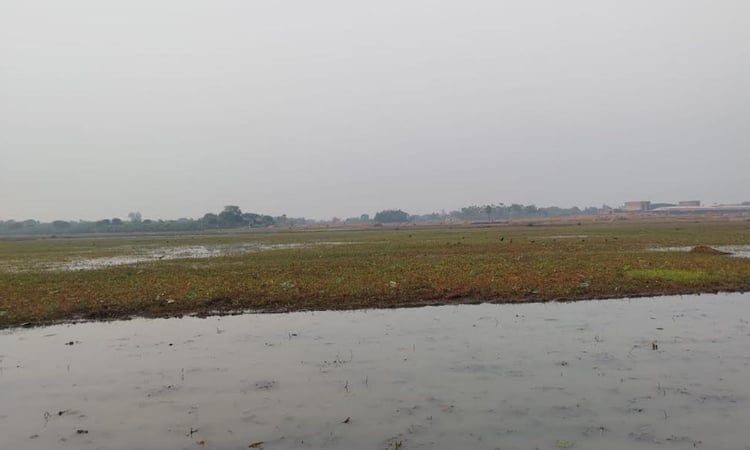
By Md Aynal Haque
RAJSHAHI, May 27, 2025 (BSS) - Wetlands wildlife sanctuaries will contribute significantly to protecting biodiversity and ecosystems from further degradation in the region.
In a recent move, the present interim government, for the first time, has declared two wetlands in Rajshahi district as "Wetland-Dependent Wildlife Sanctuaries" under the Wildlife (Conservation and Security) Act, 2012, aiming to protect the ecological significance of these areas and ensure the well-being of the wildlife.
The declaration was made on May 7 through two separate gazette notifications issued by the Ministry of Environment, Forest and Climate Change.
These are a 1.65-acre wetland in Biljowana Mouza under Tanore upazila and a 15.08-acre wetland in Bilbala Mouza under Godagari upazila.
Sharing his expertise, Prof Redwanur Rahman of the Institute of Environmental Sciences at Rajshahi University (RU) said these wetlands serve as important winter habitats for both native and migratory birds.
This is the first time such a designation has been made for these wetlands, which are crucial for biodiversity and ecological balance.
In total, over 100 bird species inhabit these wetlands, alongside amphibians, reptiles, and mammals.
Kalem, Kora, Dahuk, Gurguri, Jalpipi, and Jalmojur, as well as various migratory ducks like the Common Teal, Lesser Whistling Duck, Northern Pintail, Piyang Duck, Khunte Duck, and Gadwall are found there.
However, Prof Rahman said increasing human activities and population pressure have placed these wetland ecosystems and their biodiversity under threat.
With the new designation as wildlife sanctuaries, these areas will now offer safe habitats for birds and other wildlife.
Additionally, they will serve as important sites for education, research, and ecotourism, particularly for students, researchers, and nature enthusiasts.
Prof Mijanur Rahman of the Department of Geography and Environmental Sciences at RU said all development planning should be implemented with the conservation of life in mind.
Utmost emphasis should be given to generating awareness among the public in this context, as the protection of nature and biodiversity conservation has become an urgent need.
Prof Rahman said the total area of Biljowana and Beelkumary, along with their surrounding wetlands, is around 387 acres, and the existing Shiba River flows through the wetlands.
Protection and conservation of the biodiversity and ecosystem of the vast wetland have become indispensable.
Otherwise, he said, the aims and objectives of the wetland-dependent wildlife sanctuaries will remain limited to mere declarations.
Prof Chowdhury Sarwar Jahan of the Department of Geology and Mining at RU said climate change is altering the nature of droughts in the Barind tract by raising temperatures and increasing rainfall variability, posing serious threats to people's lives and livelihoods.
Prof Sarwar Jahan noted that the Barind region is among the worst-hit by droughts, with the number of consecutive dry days and temperature steadily increasing over the past 30 years.
Drought episodes have become more erratic due to climate change-a trend likely to worsen in the coming decades.
He said droughts create severe challenges for wildlife and vulnerable communities.
Prof Jalal Uddin Sarder of the Department of Veterinary and Animal Sciences at RU underscored the need for proper conservation of wildlife to maintain environmental balance and protect biodiversity.
More public awareness about the importance of wildlife and its existence can be a crucial means in this context.
He opined that the wildlife population has been gradually declining due to various reasons, including the shrinking of their habitat. That is why time-fitting measures should be adopted.
Wildlife sanctuaries are very important for protecting the natural world. So, ensuring security for wildlife has become an urgent need.
Prof Jalal Sarder stressed the need for declaring more wetlands in the region as wetland-dependent wildlife sanctuaries to protect their ecological significance and ensure the well-being of the wildlife, particularly birds, that depend on them for their habitat.
All government, non-government, and research organizations concerned should come forward and work together to protect the existing wildlife and nature from further degradation, he added.